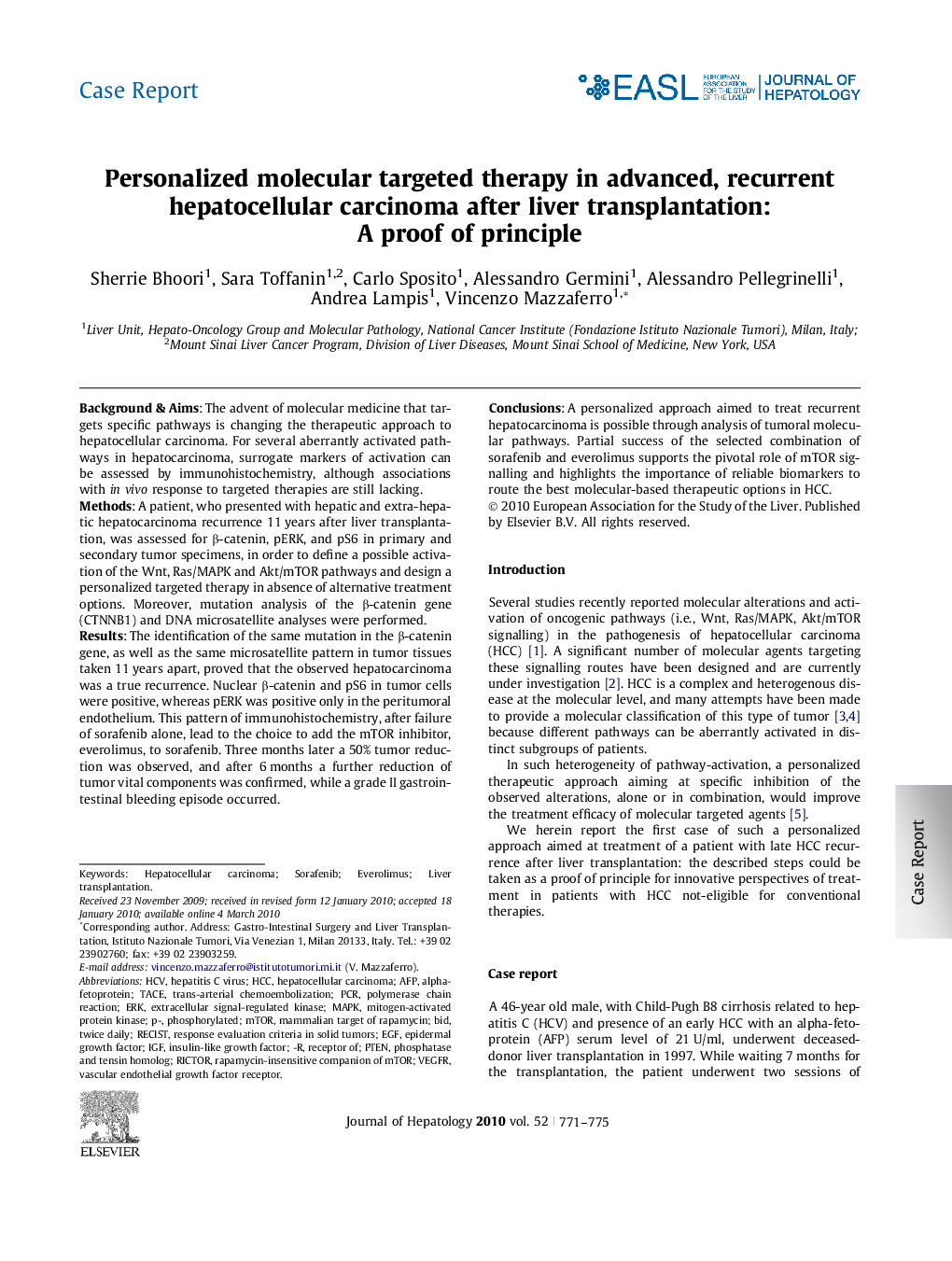| کد مقاله | کد نشریه | سال انتشار | مقاله انگلیسی | نسخه تمام متن |
|---|---|---|---|---|
| 6109502 | 1211204 | 2010 | 5 صفحه PDF | دانلود رایگان |

Background & AimsThe advent of molecular medicine that targets specific pathways is changing the therapeutic approach to hepatocellular carcinoma. For several aberrantly activated pathways in hepatocarcinoma, surrogate markers of activation can be assessed by immunohistochemistry, although associations with in vivo response to targeted therapies are still lacking.MethodsA patient, who presented with hepatic and extra-hepatic hepatocarcinoma recurrence 11 years after liver transplantation, was assessed for β-catenin, pERK, and pS6 in primary and secondary tumor specimens, in order to define a possible activation of the Wnt, Ras/MAPK and Akt/mTOR pathways and design a personalized targeted therapy in absence of alternative treatment options. Moreover, mutation analysis of the β-catenin gene (CTNNB1) and DNA microsatellite analyses were performed.ResultsThe identification of the same mutation in the β-catenin gene, as well as the same microsatellite pattern in tumor tissues taken 11 years apart, proved that the observed hepatocarcinoma was a true recurrence. Nuclear β-catenin and pS6 in tumor cells were positive, whereas pERK was positive only in the peritumoral endothelium. This pattern of immunohistochemistry, after failure of sorafenib alone, lead to the choice to add the mTOR inhibitor, everolimus, to sorafenib. Three months later a 50% tumor reduction was observed, and after 6 months a further reduction of tumor vital components was confirmed, while a grade II gastrointestinal bleeding episode occurred.ConclusionsA personalized approach aimed to treat recurrent hepatocarcinoma is possible through analysis of tumoral molecular pathways. Partial success of the selected combination of sorafenib and everolimus supports the pivotal role of mTOR signalling and highlights the importance of reliable biomarkers to route the best molecular-based therapeutic options in HCC.
Journal: Journal of Hepatology - Volume 52, Issue 5, May 2010, Pages 771-775